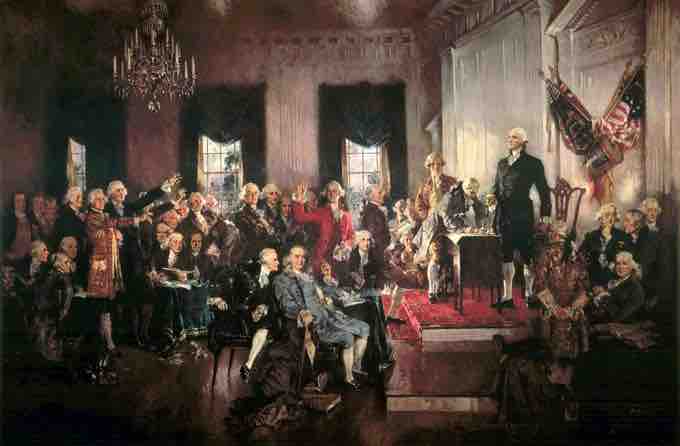The United States Constitution affords some powers to the national government without barring them from the states. Concurrent powers are powers that are shared by both the State and the federal government. These powers may be exercised simultaneously within the same territory and in relation to the same body of citizens. These concurrent powers including regulating elections, taxing, borrowing money and establishing courts. National and state governments both regulate commercial activity.

Congress of Confederation and the Constitution
The signing of the Constitution of the United States.
As Alexander Hamilton explained in The Federalist #32, "the State governments would clearly retain all the rights of sovereignty which they before had, and which were not, by that act, exclusively delegated to the United States. " Hamilton goes on to explain that this alienation would exist in three cases only: where there is in express terms an exclusive delegation of authority to the federal government, as in the case of the seat of government; where authority is granted in one place to the federal government and prohibited to the states in another, as in the case of imposts; and where a power is granted to the federal government "to which a similar authority in the States would be absolutely and totally contradictory and repugnant, as in the case of prescribing naturalization rules. "
In the Commerce Clause, the Constitution gives the national government broad power to regulate Commerce with foreign Nations, among several of the States and with the Indian tribes. This clause allowed the federal government to establish a national highway system that connected the states. A state may regulate any and all commerce that is entirely within its borders.
National and state governments make and enforce laws themselves and choose their own leaders. They have their own constitutions and court systems. A state's Supreme Court decision may be appealed to the U.S. Supreme Court provided that it raises a federal question, such as an interpretation of the U.S. Constitution or of national law.